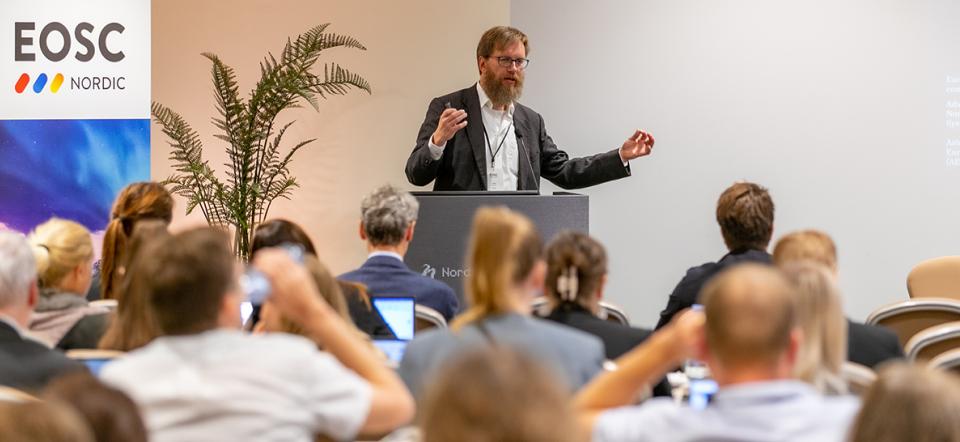The European Open Science Cloud (EOSC) is an initiative of the European Commission. It aims to develop an open science infrastructure where users can publish, find and reuse data, tools and services that can be used in research, innovation and education.
In cooperation with the Baltic countries, the Nordic region has joined the European initiative through EOSC Nordic, a project coordinated by NordForsk and the Nordic e-Infrastructure Collaboration (NeIC). Within the European initiative, EOSC Nordic was one of four European regional projects, running from 2019 to 2022.
Lene Krøl Andersen is International Liaison at Computerome, Technical University of Denmark, and was responsible for the technical management of EOSC Nordic. She says that the Nordic project has left its mark:
“We in the Nordic region have really contributed to bringing EOSC forward. This is partly because we have achieved good results in the project, for example in life sciences and climate research. The life sciences are among the leaders in open science and have developed their own toolbox, and as part of EOSC Nordic we have ensured that this has been adopted by climate researchers.”
“We have also managed to develop a model for how European cooperation can be developed. Normally, in European projects, each researcher or institution has to do everything themselves. But we set up a Nordic structure with an independent coordinating unit, where several partners share responsibility. This has clearly contributed to a greater impact in the region, and has given the European Commission new insights into how the work can be developed.”
Mindset, not technology
What is the most important outcome of the EOSC Nordic work?
“The most important thing about open science is that it is not about a specific type of database or technology, but about a new mindset. We have the technology to share data, but our traditional ways of thinking and national research systems make it difficult. We need to adapt so that we are able to collaborate and share and reuse data, tools and services. Europe is competing in a global arena and this will be a key way to compete. And to do so, we need infrastructures built on a different mindset, on trust and security. Through EOSC Nordic, we have initiated processes and tools that now live on, and we have project partners and ambassadors who will continue to work for open science.”

EOSC Nordic has consisted of six different work packages. One of them has dealt with what is called FAIR data, a key area in open science that deals with data meeting the principles of findability, accessibility, interoperability, and reusability. Here too, EOSC Nordic has contributed with good results.
“We have had a major focus on FAIR data. This has been something that has been unique in a European context, and we can safely state that EOSC-Nordic has contributed significantly to increased uptake of FAIR in the region. We have conducted a number of courses and have achieved both competence building and adaptation. Through EOSC Nordic, we can say that FAIR data has been kick-started in the Nordic region. And some of our colleagues who worked on this in EOSC Nordic have now moved on to work with FAIR data at a European level.”
How has the cooperation with the Baltics worked?
“It has been very useful to cooperate with the Baltic countries. The one work package on digital infrastructure has been led by Estonia, and they have contributed important expertise to the project, also at the policy level. An interesting aspect is that Estonia came into the project and said that they want to use the Nordic countries' infrastructure and data. That was instructive and goes to the core of what EOSC is about.”
Positive evaluation
At the end of EOSC Nordic, an evaluation was conducted. It states that the Consortium has delivered exceptional results with significant immediate or potential impact. Not least the work on policy and communication, where the evaluation said that EOSC Nordic had “overachieved”.
Other main results of EOSC Nordic are:
- Increased FAIR uptake in the region: FAIR score has increased for 98 repositories, and more than 300 data stewards has been trained
- New services and tools facilitating the integration with the EOSC Future catalogue, FAIR assessment, and EOSC knowledge uptake
- EOSC alignment and discussion fora consolidated in the region
- Increased cross country and cross disciplinary collaboration

